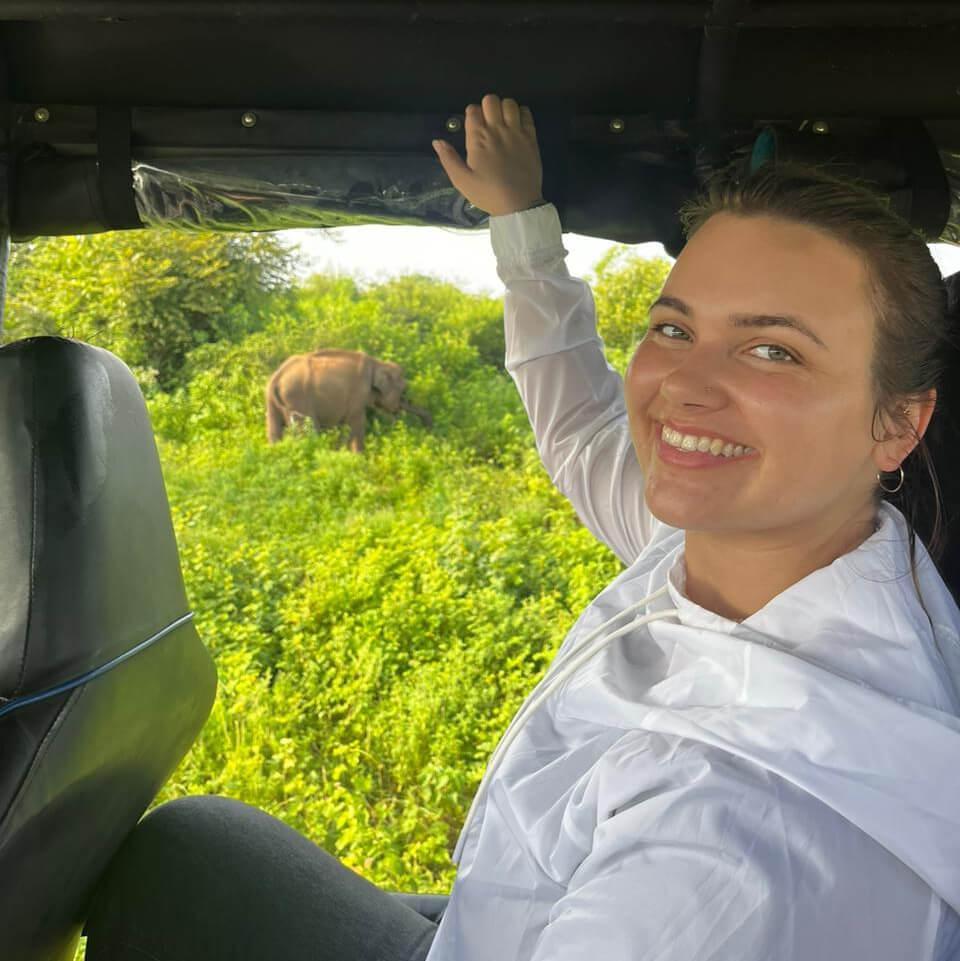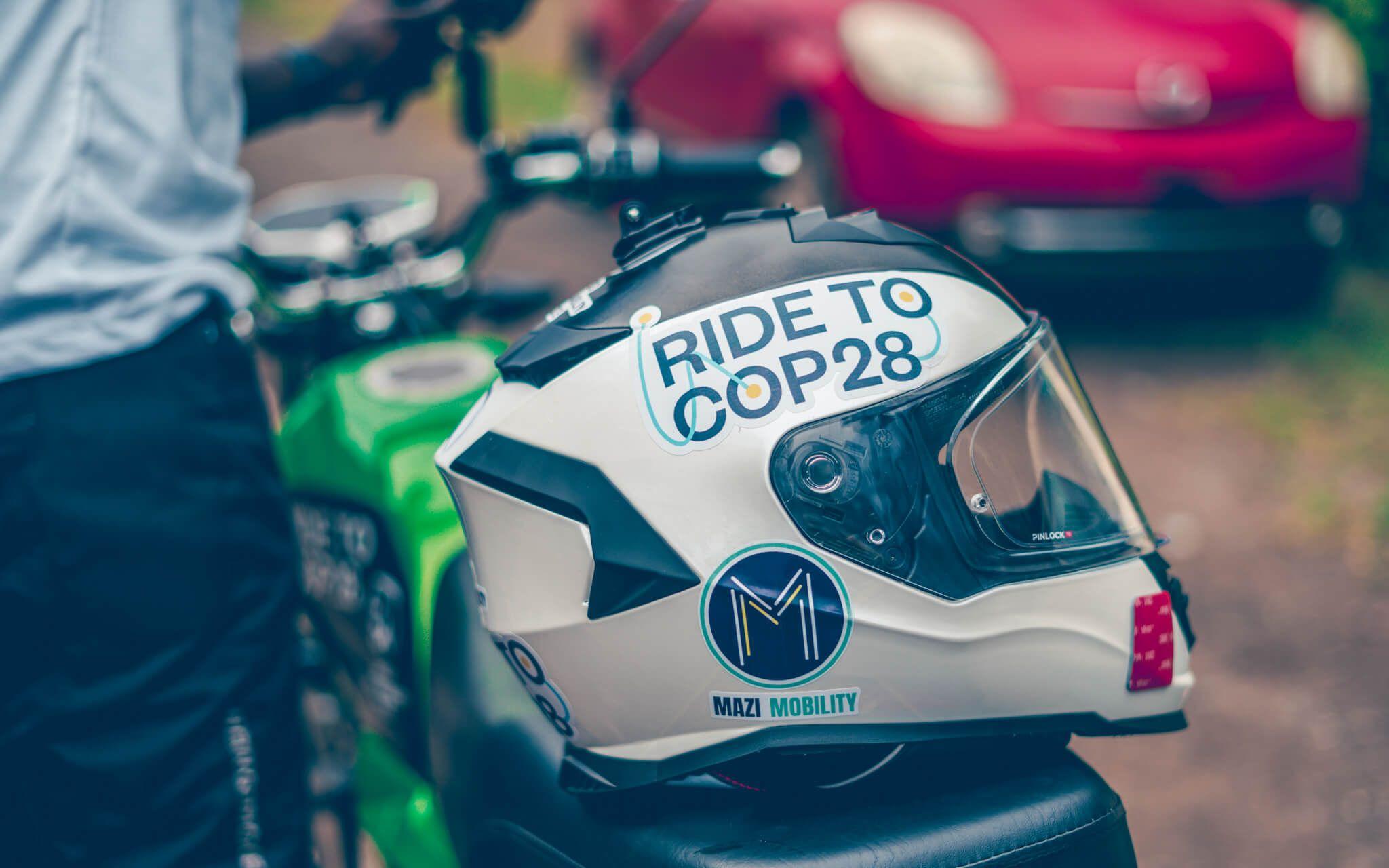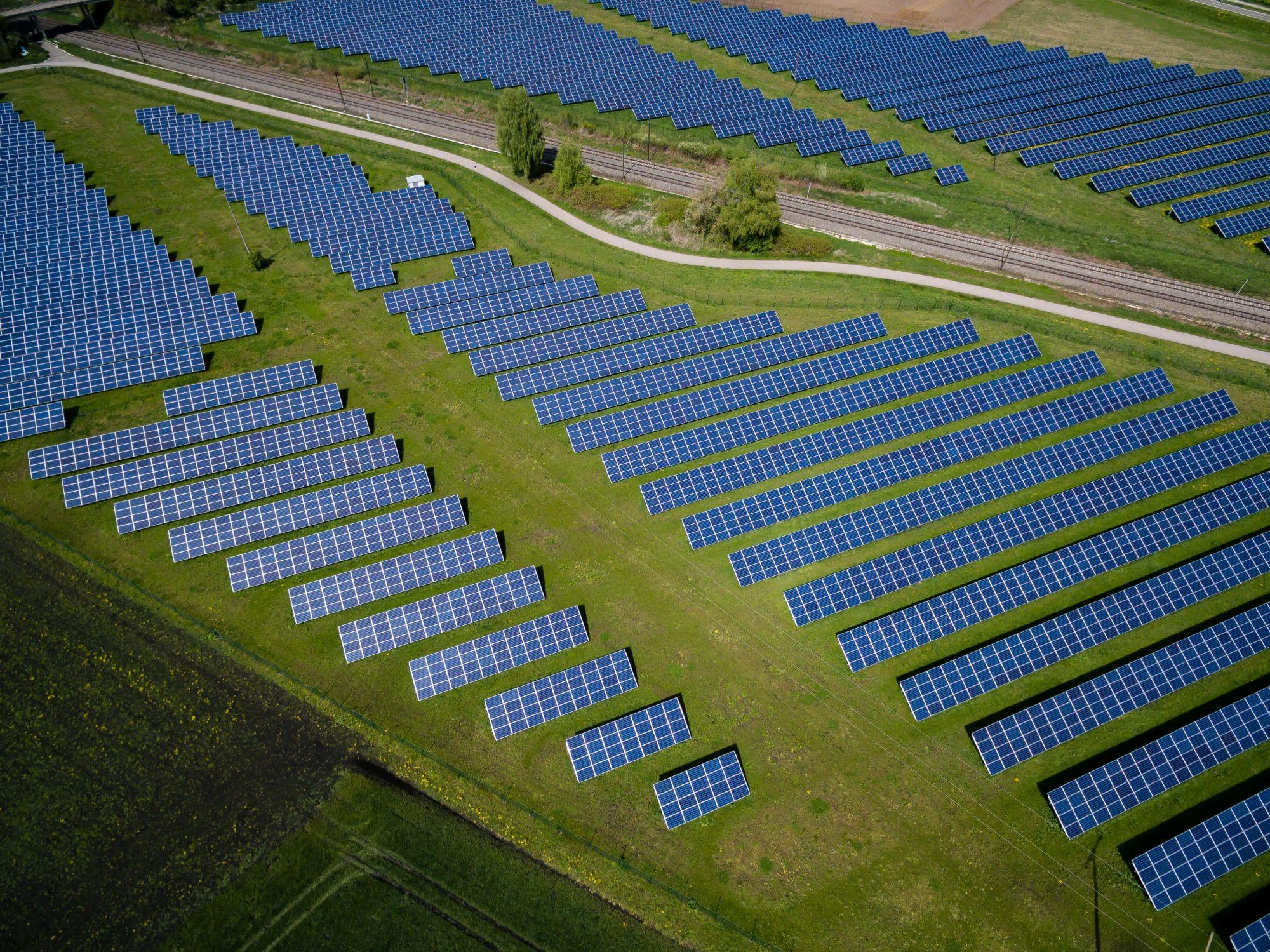Breaking the Silence on Period Poverty
Menstrual hygiene is a tricky subject for many cultures. Yet, creating sustainable, affordable solutions for the billions of women living around the world is crucial. Wingwoman (an NGO based in Lebanon) and Sanitree (a global company working from Jaipur to Edinburgh) are here to change the story about menstrual care.
“Fatima” thought she was dying.
When she got her first period, she spent two days in fear, unsure of how to tell her family. It was only when her mother noticed her distress that Fatima learned about her menstrual cycle for the first time. It was the first and last time she spoke about it.
Fatima, a Syrian refugee living in Lebanon, is now a mother to five daughters. She confessed she still hasn’t spoken to them about their periods. “I don’t know how to explain it,” she admitted. “I’m too embarrassed.”
This conversation was a turning point for Meelie Pemberton, co-founder of Wingwoman Lebanon. She realised that for her reusable sanitary pads to succeed, it was periods in general, not just sanitary products, that needed to be more accessible.
Women need the language to talk about their periods. Two woman-led companies are tackling this taboo in their communities and abroad.
Wingwoman Lebanon and Sanitree (based in Edinburgh and Jaipur) share a profound mission: bring dignity and awareness to the centre of female hygiene and family care.
Understanding Period Poverty
Worlds away, in a small village in India, Meera struggled to find professional freedom. After getting married, she spent 14 years convincing her in-laws to let her find a job. “I insisted that I should continue working and learning,” but her in-laws declined her request.
Until Meera found Sanitree. Now living in Jaipur with her husband, Meera is a Master Pad Seamstress at Sanitree’s Her Shakti Centre.
Both companies are on a mission to de-stigmatise all things menstrual.
Sanitree’s Her Shakti Centre in Jaipur helps build the language to speak about periods while teaching sewing skills. Similarly, Wingwoman provides vulnerable Lebanese communities and Syrian and Palestinian refugees with open conversations about women’s health and decent work opportunities by making reusable pads and diapers.
The stigma surrounding women’s health extends globally, affecting 500 million women and girls who lack access to the facilities they need to manage their periods. While sanitary pad usage is gradually rising, it does so at the risk of exacerbating the climate crisis. With an average of 36g of plastic in every pack of single-use sanitary pads, one cycle’s worth of pads is equivalent to 5 plastic grocery bags.
For Fatima and Meera, their challenges reflect the experiences of many women in their communities. Though the transformations in their lives are uniquely their own, they could be the story of any woman.
And this conversation starts with a reusable pad.
Some women use single-use pads again and again. Some use newspapers; some use leaves.
Enhancing Access Through Sustainable Solutions
In 2020, Meelie Pemberton met a group of skilled seamstresses struggling to find employment amid Lebanon’s economic crisis, a downturn worsened by the 2020 Beirut Port explosion.
“I knew a group of women here who were in a particularly disadvantaged, vulnerable situation, going a bit mad being sat at home without work. So I decided to start organising some sewing lessons at my house,” Meelie explains. The sewing lessons led to a small grant, which then became decent work opportunities for vulnerable communities and refugees living in Lebanon.
At first, Meelie focused on the environmental benefits. But in times of economic hardship, sustainability doesn’t always sell. As Meelie reflects on Lebanon’s current economic climate, “We're saving people money; it actually helps the case for providing our products, knowing that this is the biggest priority anyone faces.”
In the end, women are choosing reusable products for their financial benefits - and that’s perfectly fine.


“In terms of environmental sustainability, to be completely honest, our materials aren't necessarily sustainable,” Meelie confesses. Although using 100% sustainable material is a goal of theirs, the current situation in Lebanon and import restrictions make it difficult to realise for now. However, in a country that struggles with a crippling garbage crisis, Wingwoman is significantly reducing single-use waste in some of Lebanon’s most vulnerable communities, from university campuses in Beirut to Syrian refugee camps in the Bekaa Valley.
“Some women use single-use pads again and again. Some use newspapers; some use leaves.” Meelie added that many women in disadvantaged communities across Lebanon are hesitant to ask their husbands for money to buy sanitary products.
Similarly, in Jaipur, access to menstrual hygiene products remains limited due to economic and social barriers. Nationally, only 36% of menstruating women use sanitary pads, with many resorting to less hygienic alternatives like rags and sometimes even husk and soil.
Sanitree began as a volunteer-run project to address period poverty and plastic waste in Northern India. In 2019, the model was replicated in Jaipur with the opening of the Her Shakti Centre, Her Shakti meaning “power for all women.” The centre is home to the production of Sanitree’s reusable cloth pads, though the company runs between Edinburgh and Jaipur.
Erin Stratton, a volunteer team lead at Sanitree Edinburgh, was born and raised in Scotland. She knew she wanted to help expand access to period products the moment she heard about Sanitree. Acknowledging her own privilege, she notes, “We have sanitary products and all that sort of good stuff in the bathrooms of all public spaces, which is amazing.” This access fuels her dedication to ensuring women worldwide have similar opportunities.
Sanitree’s reusable pads are made from 100% locally sourced sustainable materials. Each pad is biodegradable and made from organic brushed cotton with a waterproof layer of polyether (PEI). “By using our pads for two years, users prevent 572 disposable pads from entering landfills,” shares Eleanor Lever, another volunteer team lead at Sanitree Edinburgh.
“We’re really trying to take the best route for the climate,” says Erin; for Sanitree, this means minimising reliance on resources that require extensive transportation. Fortunately, India’s thriving textiles industry has made local sourcing easy for Sanitree.
By using our pads for two years, users prevent 572 disposable pads from entering landfills. We’re really trying to take the best route for the climate.
Improved Health, Improved Economic Opportunity
“When I started working as a seamstress, I started earning and stopped asking my husband for money. I decided I would never stop working,” reflects Meera. “My confidence has increased, and I have really found a support system here.”
Sanitree offers flexible, meaningful work to vulnerable women, having employed 34 people from the local community over the years. “We currently have a team of seven beneficiaries in Jaipur who come from various vulnerable backgrounds. Widows, single mothers, domestic abuse survivors who are just able to support their families through part-time, flexible employment.”
While Erin and Eleanor lead operations and sales in Sanitree’s Edinburgh branch - managed entirely by student volunteers - Meera and her colleagues in Jaipur form the heart of Sanitree’s operations.
Sanitree’s model empowers women to not only enhance their seamstress skills but also feel inspired to pursue further employment opportunities after their time at the Her Shakti Centre. “We've got some amazing success stories of people going back to nursing and things like that,” Erin shares.


Meera doesn’t know if she’ll be with Sanitree forever, but she is sure that she will never stop working. “I believe you can't do much sitting at home, but once you step out, you can learn and do a lot. The world opens to us.”
At Wingwoman, Meelie has worked to provide decent employment opportunities without adding financial burdens to vulnerable women in an already crippled economy. “Our model works as a way to try and break down as many barriers as possible to women working,” Meelie says. To bypass the need for transportation and childcare, Wingwoman provides each woman with a sewing machine to work from home. The team delivers material weekly, collects the finished products, and does quality control checks before distribution. To date, Wingwoman has provided work for 23 women from disadvantaged communities.
From Silence to Action
Fatima’s silence around menstruation translated into something loud for Wingwoman. “She actually changed what we do in our awareness sessions. Now we do roleplay.” Meelie says, recalling women nervously attempting to discuss their periods for the first time, often bursting into shy giggles.
The social stigma and secrecy around menstruation make it difficult for so many women to manage their periods. “We teach the science, so people have the language. Then we role play so they can practise saying the words out loud.” Meelie believes that the starting point for change is arming women with the language to speak about their cycles.
This extends to conversations outside of menstruation as well. “We met a woman at a menstrual health session, and she said, ‘These pads are a great idea. Do you have anything we could use for our children?’ She then told us how she was using disposable diapers, washing them and putting them back onto her child.” This conversation inspired Wingwoman to create reusable diapers. With adjustable snaps, the diapers grow with the child, saving up to 92% compared to traditional disposable options. For Meelie, maintaining dignity is essential both inside and outside of menstruation.
“[There’s an] effort to destigmatise menstruation and make it more of an open conversation, which is so important,” says Erin. She explains that many issues stem from women not understanding their menstrual cycles. At the centre, Sanitree conducts workshops on menstrual health, as well as English lessons and self-defence classes to further empower their beneficiaries.
For Erin, these conversations also need to happen at home. Since the enactment of Scotland’s Free Period Products Act, there has been growing momentum to promote reusable menstrual products. “Our goal is to advocate for changes in menstrual hygiene management and reduce period poverty on a national level.”
Continuing the Conversation
Ultimately, empowering women and girls to engage in open conversations is crucial. Eleanor is inspired by Sanitree’s focus on empowering individuals to become period ambassadors. “Teaching one child or one parent, you then slowly start to chip away the barriers, which stop people from talking, and they can then start making it more of a normalised conversation.” Today, Sanitree has worked with over 100 schools in Jaipur to educate over 30,000 people on menstrual health through interactive sessions.
Similarly, Meelie emphasises the importance of dialogue in their sessions. “We start our sessions by asking ‘Who would use a reusable pad?’ and the response is overwhelmingly, ‘Absolutely not, that’s disgusting,’” she says. But then, the team conducts a session, benefits are explained, and trust is built.
“Then people are like, “Oh, that's a cool idea, I'll try.’”
And in these spaces of shared experiences, where we can advocate for sustainable, inclusive solutions, these conversations can change everything.
Most Popular
The Climate Tribe delivers stories about Biodiversity and Conservation, Circular Economy, Food and Water , and how they intersect with climate.
Subscribe
Get the latest stories inspiring climate action around the globe straight to your inbox.





